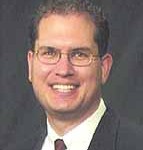A living will should be part of every complete estate plan. A living will is a declaration that you desire to die a natural death. It states that you do not want extraordinary medical treatment or artificial nutrition or hydration used to keep you alive if there is no reasonable hope of recovery. A living will gives your doctor permission to withhold or withdraw life support systems under certain conditions.
You must follow certain legal requirements to make your living will effective. You must be 18 years old. The directive must be in writing, dated, and signed by you or at your direction in the presence of a qualified witness. It also must contain the specific language that the State of Utah requires. Utah allows you to choose one of four options regarding your end-of-life wishes: (1) you can let your agent decide when to withhold life sustaining treatment; (2) you can make the decision yourself today to withhold life sustaining treatment; (3) you can choose to prolong life; or (4) you can choose not to decide right now. That language generally states that if you have a condition that is terminal or that will leave you in a permanent vegetative state, life-sustaining procedures are to be withheld from you.
Tell your family members where you keep your original living will, and keep it in a place where they can find it easily. It is recommended that you make several originals, giving one to your primary care physician, one to the hospital if they have a file for you, and keep one at your home. Your attorney should also keep an original in his file. I note that in the event you change your mind about your directive, you must retrieve each of those original living wills and destroy them or revoke them by some other means that leaves no question as to your intent.
If you do not have a living will and you are unable to make your medical decisions, someone else must decide for you. If two doctors diagnose that you are terminally and incurably ill or in a persistent vegetative state, extraordinary means or artificial nutrition or hydration may be withheld or stopped with the permission of one of the following, in the order named: your health care agent, your guardian if a court has appointed one, your spouse, the majority of your children, your parent, the majority of your siblings.
Sean Sullivan is a partner in the firm of Brindley Sullivan, 382 S. Bluff, St. George and can be reached at 435-673-9220.
